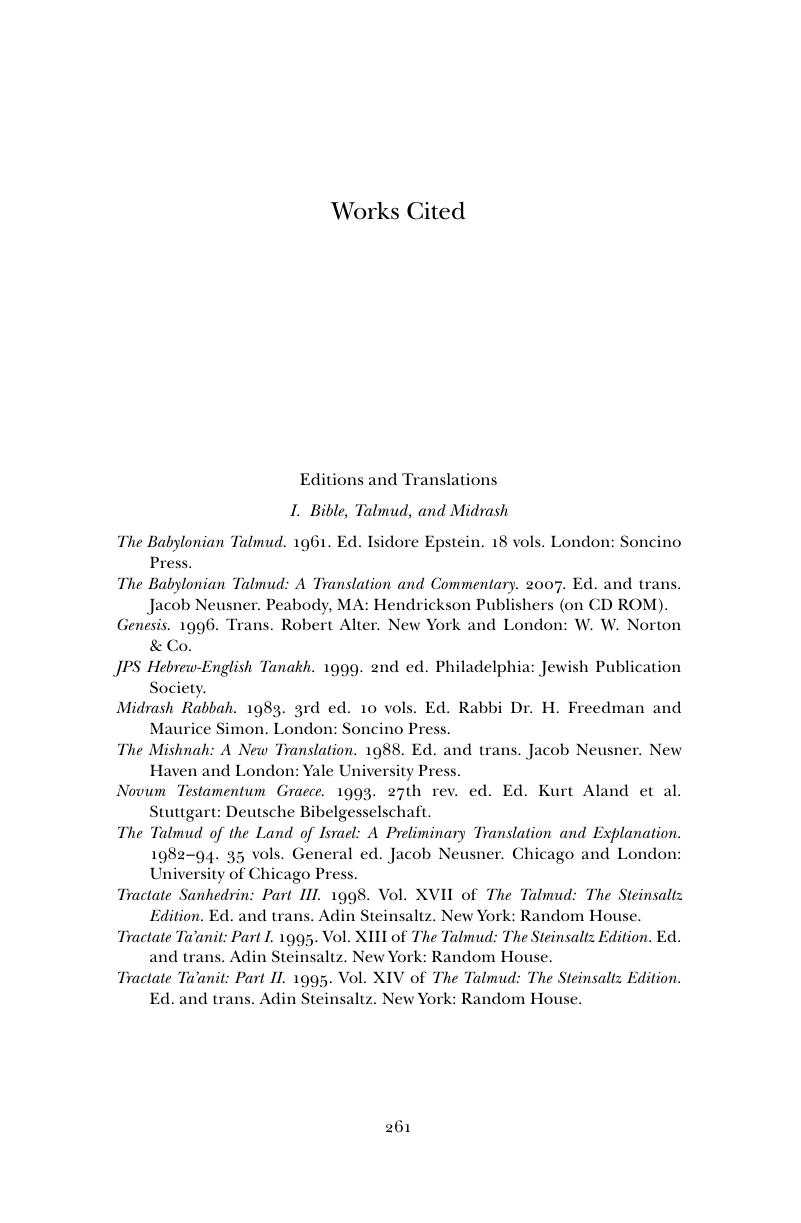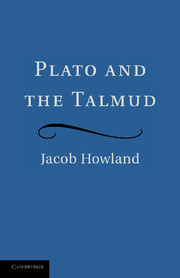Book contents
- Frontmatter
- Contents
- Acknowledgments
- Introduction: Athens and Jerusalem
- 1 Talmudic and Platonic Writing
- 2 Rabbis and Holy Men
- 3 Prophets and Philosophers
- 4 Fathers and Sons
- 5 Words and Deeds
- 6 Gods and Men
- 7 Miracles and Necessity
- Epilogue: Texts and Traditions
- Works Cited
- Index to Biblical and Rabbinic Texts
- General Index
- References
Works Cited
Published online by Cambridge University Press: 10 November 2010
- Frontmatter
- Contents
- Acknowledgments
- Introduction: Athens and Jerusalem
- 1 Talmudic and Platonic Writing
- 2 Rabbis and Holy Men
- 3 Prophets and Philosophers
- 4 Fathers and Sons
- 5 Words and Deeds
- 6 Gods and Men
- 7 Miracles and Necessity
- Epilogue: Texts and Traditions
- Works Cited
- Index to Biblical and Rabbinic Texts
- General Index
- References
Summary

- Type
- Chapter
- Information
- Plato and the Talmud , pp. 261 - 270Publisher: Cambridge University PressPrint publication year: 2010



